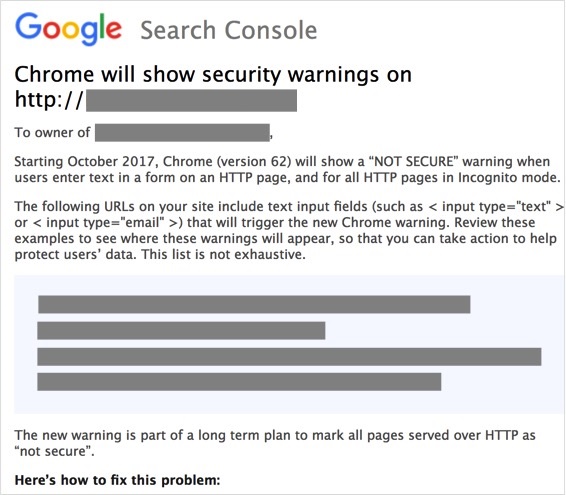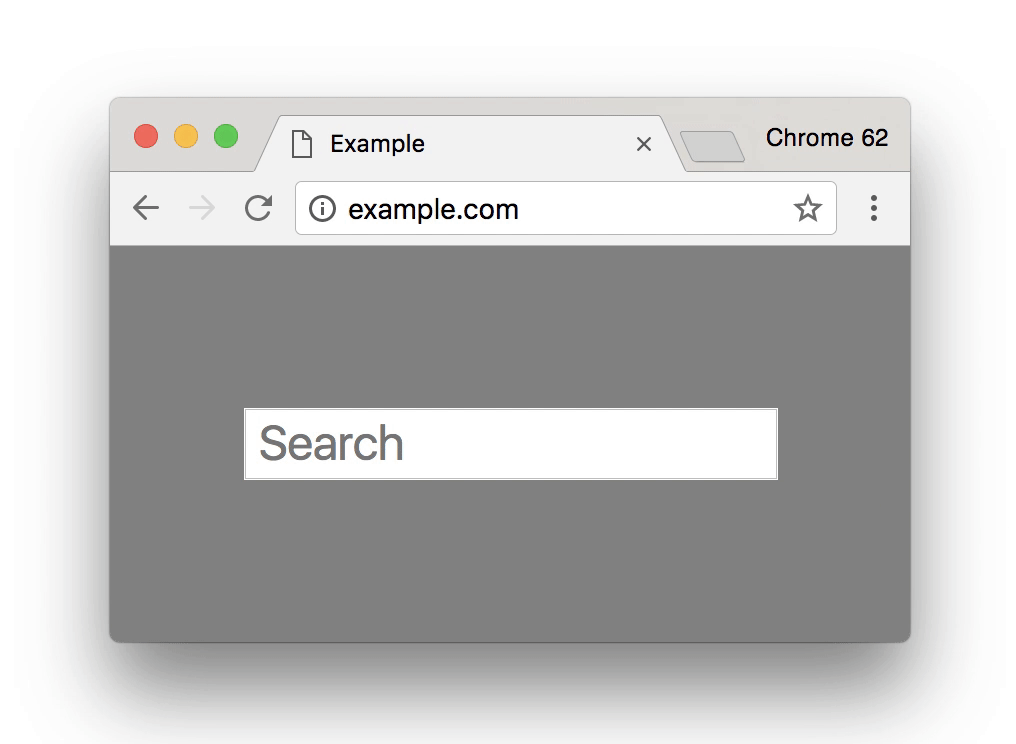
Google issued its latest reminder via the Google Search console which is used by webmasters. This means most marketing and sale teams may not be aware of the new warnings or the impact they could have on user behavior.

Why will conversion suffer?
Chrome's new warnings should concern any retailer that hasn't made the switch yet to HTTPS. Shoppers will see the warnings on template oriented objects like search boxes and all types of forms including email signup, sign-in, create account, add-to-cart, size selectors, product reviews, locator forms and even initiating online conversations with customer service.
Considering Chrome has over 54% market share, these new 'Not Secure' warnings could dramatically hurt conversion on desktop and mobile websites. Mobile on-site search is an area of particular concern as one study found that mobile search bar users convert 2x higher compared to non-users.
Not secure warnings seen from mobile websites could even negatively impact store traffic and sales if mobile consumers are reluctant to use store locator features.

As covered in Wired Magazine, research by Pure Oxygen Labs, the creators of URLgenius, shows that 40% of the Internet Retailer 100 have not yet migrated to the HTTPS protocol. The new warnings, however, arrive as online retailers prepare for the holiday season and work to create a seamless shopping experience. For those retailers that haven't made the switch, HTTPS related migration projects may move up the list of priorities because these warnings could negatively impact conversion.
Why haven't many retailers made the switch to HTTPS?
The exact impact on conversion is unknown and could largely depend on the audience of the retailer. An HTTPS migration project can require significant technical resources and effort, especially for large-scale sites. Migrating a typical retail site for example involves a series of complex, interdependent steps, including:
- Ensuring all platform assets – from product image files, to scripts, style sheets, and vendor-hosted files – are accessible from secure URLs.
- Every web page’s HTML must be TTPS URLs for all browser loaded assets (without introducing added latency or harming page load speed).
- Successfully redirecting all incoming HTTP page requests for department, category, subcategory and product level pages to the corresponding HTTPS version, which for big retailers, means millions of pages.
This complex migration process is fraught with risk and large retailers need their senior developers and consultants involved to achieve successful implementation.
Mobile App Deep Linking and HTTPS
The HTTPS protocol is also important for mobile app deep linking initiatives. Apple's Universal Links and Android App Indexing both require that your site is accessible via HTTPs. If your marketing team is making plans to increase app engagement by deep linking to sections or pages in your app, make sure to prioritize your HTTPS migration project accordingly.
URLgenius and HTTPS
The URLgenius app deep linking platform is fully secure via HTTPS. You can have confidence in using secure URLgenius links in any marketing channel. Should you happen to for get the 's' when implementing the link, the URLgenius platform will automatically redirect to the secure version of the link.
URLgenius routes traffic to your mobile app or website depending on the device clicking the link. Although URLgenius links are secure, your website should also be secure with HTTPS to prevent the display of 'Not Secure' warnings in Chrome.
App deep linking can adds yet another layer of complexity to the HTTPS migration equation. Contact us at info@urlgeni.us if you need help migrating to HTTPS or with aligning your secure site efforts with your mobile app deep linking strategy.
